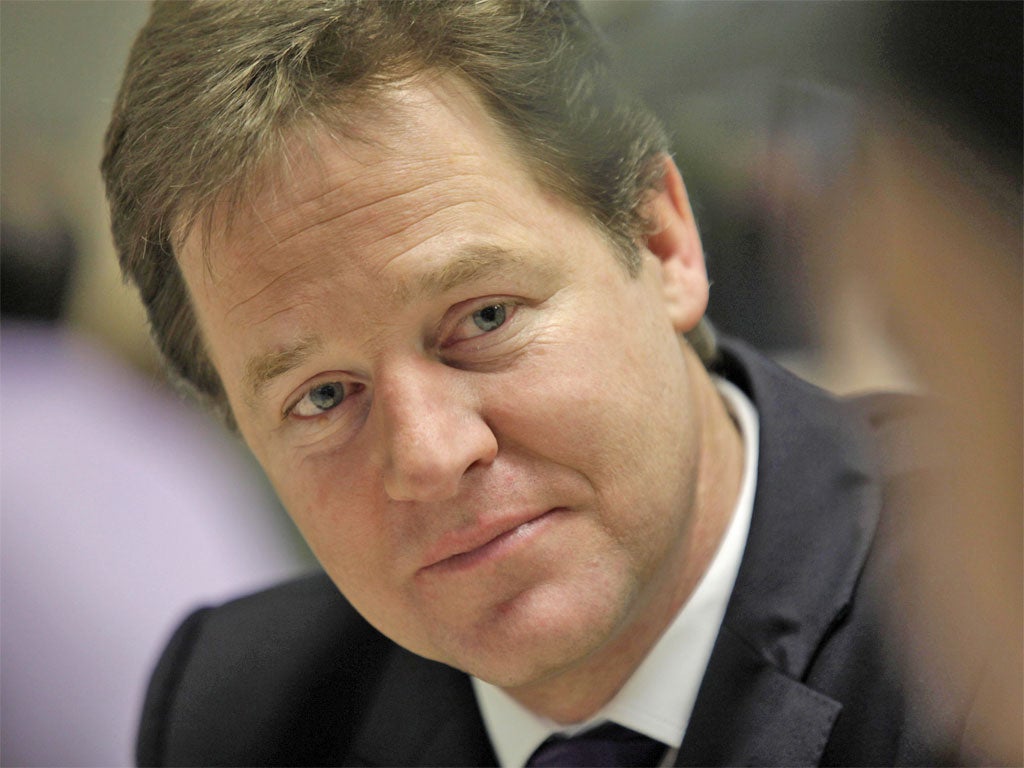Boundary changes could leave Lib Dems with 11 seats
Poll casts doubt on party's chances of being able to form Coalition after next election

The Liberal Democrats face a "double whammy" of declining support and boundary changes that could destroy their chances of holding the balance of power after the next election.
The latest "poll of polls" for The Independent suggests that Nick Clegg could see his number of MPs reduced from 57 to 19 unless the party improves its ratings. The figure slumps to just 11 MPs when the proposed new parliamentary map is taken into account.
In practice, election experts believe the Liberal Democrats would do better than that because they would target their resources on the most winnable constituencies and their MPs have often defied the odds by holding on to their seats. But the experts say the reduction in the number of MPs from 650 to 600 will hurt the Liberal Democrats proportionately more than Labour or the Conservatives.
In another headache for Mr Clegg, Liberal Democrats who oppose the Coalition with the Conservatives are to form a rebel group within the party.
Liberal Left will be launched at the party's spring conference in Gateshead next month, at a meeting addressed by Baroness (Jenny) Tonge, a Liberal Democrat peer, and Richard Grayson, the party's former policy director. Accusing Mr Clegg of shifting the Liberal Democrats to the right, the new group's founding statement says: "We are now part of a Government which is Eurosceptic, neo-liberal and socially conservative." It calls for the spending cuts to be slowed.
It calls for "overt and public dialogue" between Lib Dems, Labour, Greens and others on the democratic left.
The latest weighted average of the polls puts the Tories on 39 per cent and Labour on 38 per cent (both unchanged on the previous month) with the Liberal Democrats on just 13 per cent (up one point). On the current boundaries and a uniform swing, that would give the Tories 291 seats, Labour 315, the Liberal Democrats 19 and other parties 25. But when the provisional new boundaries due to take effect at the next election are factored in, the figures are Tories 293, Labour 273, the Lib Dems 11 and others 23. On both scenarios, there would be a hung parliament.
Senior Lib Dems still hope to hold the balance of power. But John Curtice, professor of politics at Strathclyde University, who compiled the "poll of polls," said: "The addition of the new boundaries to the party's current poll rating creates the risk that a calamity might become a disaster."
Join our commenting forum
Join thought-provoking conversations, follow other Independent readers and see their replies
Comments
Bookmark popover
Removed from bookmarks